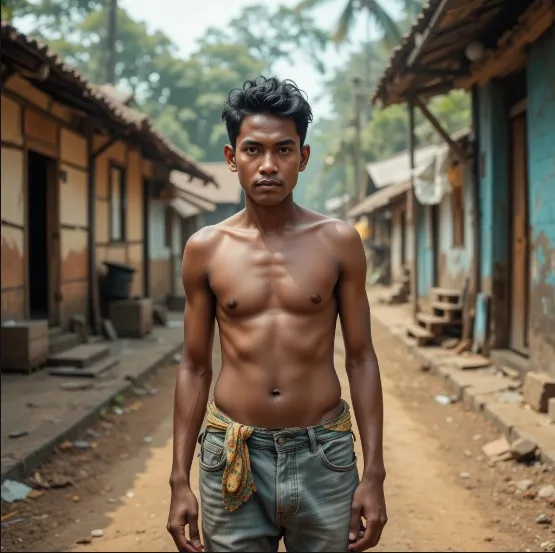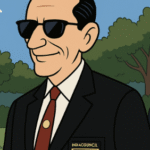From The Lotus To The Thames-by Fazli Sameer
Source:Fazli.substack
In the sun-drenched southern skies of old Ceylon, beneath the coconut palms and temple bells, a young man named Mahen stood at the edge of a decision that would alter his life forever. It was 1969, and at just twenty-one, Mahen was about to walk away from his studies at the University of Colombo, a path laid carefully by his parents, relatives, and the expectations of society. He didn’t do it out of rebellion, nor failure. Rather, he felt the tug of purpose in another direction: the world of corporate business and finance.
His uncle, a senior officer at the Bank of Ceylon, had mentioned an opening at a branch in Borella. “There’s more to learn behind a counter than behind a blackboard,” his uncle had said with a knowing smile. Mahen, who had always been neat, quick with numbers, and calm under pressure, found himself drawn to the order and promise of the banking world.
He joined as a trainee banking assistant and was soon immersed in a world of ledgers, account statements, credit authorizations, and currency notes. He wore crisply ironed shirts and carried a black ledger notebook wherever he went. Customers admired his politeness, and colleagues noted his diligence. Mahen enjoyed it, not just the structure, but the sense that he was helping people build something: savings for a wedding, a loan for a trishaw, an account for a newborn child.
But the island was not at peace.
By mid-1971, an ominous cloud drifted over the country. A group of young radicals, most of them disillusioned university students, took up arms inspired by the rhetoric of revolutionaries like Che Guevara and Kim Il Sung. Their goal: to overthrow what they saw as a corrupt, capitalist, and imperialist-influenced government. Their method: armed insurrection.
Mahen first heard the news, that was sweeping through the grapevine from the small business houses located around the bank: a police station in Moneragala had been attacked. Weapons stolen. Then another in Kegalle. Soon, government buildings across rural areas were seized, while leaflets distributed in the cities called for a people’s uprising. Mahen, commuting daily by bus from Nugegoda to Borella, began noticing checkpoints, military lorries, and the smell of smoke in the distance. Rumors swirled like dry leaves in the wind: buses burned, postmasters kidnapped, civil servants executed, dead bodies floating on the Kelani river into the sea.
Banks, too, were under threat. Currency vaults were fortified, and senior officers advised Mahen and his colleagues on emergency procedures. “If anything happens, stay calm. Close the steel shutters. Don’t try to be a hero,” his manager warned. It was a time of unbearable tension.
The government, rattled but resolute, launched a full-scale counteroffensive. Troops swept through insurgent-held areas. The Air Force bombarded jungle camps. Village by village, hill by hill, the state clawed back control. The rebels’ charismatic leader, Ranjit Wijesundera, a former philosophy student turned guerrilla commander, was finally cornered and killed in a gun battle near Deniyaya. His death was the turning point. With him, the movement crumbled.
Peace, however, did not return easily. The war had left scars, on roads, on minds, on dreams, on critical facilities. Mahen kept working. Through food shortages, power cuts, and ration books, he showed up, pen in hand, face composed. In 1974, he married his childhood friend, Malkanthi, in a modest temple ceremony in Maharagama. She was kind, graceful, and shared Mahen’s quiet resilience. They were secular Buddhists who chose to follow the path set out by the Buddha sans all the rituals, poojas, offferings, pilgrimages, and peraheras. Both, practical and open minded.
They tried to build a future. They rented a small house in Dehiwala. They bought a second-hand Morris Minor. But the country was shifting, politically volatile, economically stagnant, and emotionally drained. Every step forward seemed harder than the last. When an opportunity arose for a banking job in Kuwait through a friend in the trade department, Mahen and Malkanthi made a heartbreaking decision: to leave.
Their final night in Ceylon was bittersweet. As they packed their suitcases, gifts for relatives, old photos, the blue-ribboned birth certificate of their infant daughter Anusha, Mahen paused by the gate. The air smelled of temple jasmine. A radio played Baila music in the distance. He held Malkanthi’s hand tightly. “Will we ever come back?” she whispered.
He didn’t answer. Just squeezed her hand. In the back of her mind she felt this was their last step in their homeland.
The Middle East was a furnace of opportunity and challenge. Mahen worked long hours in a multinational bank, rising through the ranks with steady persistence. Malkanthi adjusted, raising their daughters, Anusha and later Asuntha, while adapting to life in a desert far from the lush green of their homeland. They learned Arabic as a second language and became very fluent in its usage. The years passed swiftly. Letters from home told of more unrest.
In the 1980s, a new militant campaign began: this time driven by minority ethnic separation and civil war. Bombings, assassinations, checkpoints, an entire generation grew up in fear.
The conflict raged for thirty years. Another rebel leader, Viswanathan Panchadcharan, far more ruthless and organized than the last, led a sophisticated militant campaign in the north and east. He fought for a separate state for the minorities on the grounds that they were being discriminated by the majority ruling governments. Once again, the government retaliated. Once again, the forces were mobilized. By 2009, that war too ended, bloody and decisive, with the death of the militant leader, Viswa, and the island, battered and broken, fell silent. Hundreds of thousands of people from the minority communities sought refuge in Australia, the UK, Europe, USA, and Canada. The nation lost some of its best minds. In both conflicts, that failed badly, the militants did have many justifiable reasons to fight with a view to usurp the prevailing regimes and seek redress, rights, and dignity as all the governments who ruled after independence were immersed in corruption, greed, and totally self serving.
Mahen, now a seasoned professional with silver in his hair, watched it all from afar with a heavy heart. He had returned once, briefly, for a funeral in 1993, but the sight of barbed wire and military patrols shook him deeply. “We can’t raise our children here,” he told Malkanthi.
After completing their contracts, and with their daughters now educated and grown, Mahen and Malkanthi applied to migrate to the UK, where Anusha was already working as a pharmacist in London. In 2018, after decades of toil, they arrived at Heathrow, older, slower, but finally free of the anxieties that had shadowed their youth.
They moved into a quiet flat in Wimbledon, with flowering cherry trees outside bordered by a white picket fence running all around, and the laughter of their grandchildren filling the rooms. Mahen volunteered at a local library. Malkanthi joined a Tamil-Sinhalese cultural association. They cooked kiri bath on Sundays and shared stories of Colombo’s old trams, of the big match cricket at the Oval, evening walks on Galle Face Green, train rides to Kandy on the Udarata Menike, and of moonstone moments by the beaches at Wellawatte.
Sometimes, Mahen would sit by the window with a cup of strong Ceylon tea and stare into the distance. The London rain would fall soft and grey. The weather was always cold and grey unlike the tropical climes of Colombo. He thought of his old banking branch, of his father’s transistor radio on which they listened to cricket commentary, of Ranjit Wijesundera’s last stand in the hills and the bloody end to the 30 year ethnic conflict.
So much had been lost. So many sacrifices made.
But peace, however delayed, had come. At a huge cost.
And Mahen, once a young banking assistant working away under fluorescent lights, had weathered it all, with dignity, love, and the quiet strength of a man who had never stopped building, no matter how often the world fell apart.
Returning to Colombo on a holiday in December, Mahen found so many changes in the city. Massive condominiums had erupted down every street in the old capital. Businesses had given rise to massive star hotels in the Fort and Galle Face. A new Port City was under construction on land reclaimed from the sea with the support of the Chinese government. The place looked like it was ready to take off into a new Singapore in the Indian Ocean. The potential was staring the people in the face.
Unfortunately, the political climate never changed. The same old politicians with new names and faces kept on taking power in government and failed to deliver. There was more brain drain as the intellectuals chose to migrate seeking greener pastures and a peaceful life, overseas, for their families.





















